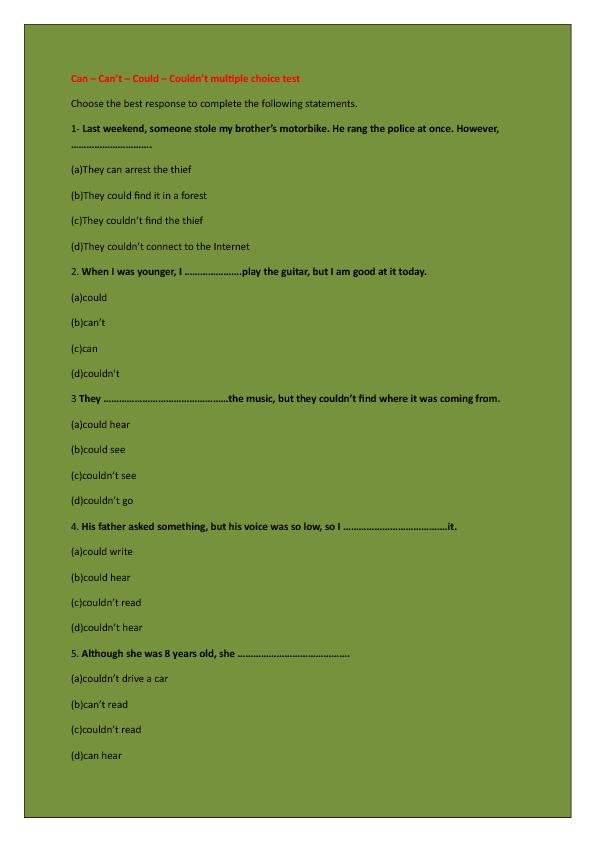
Please contact me if you have any questions or comments. Welcome! I'm Seonaid and I hope you like the website. Need more practice? Get more Perfect English Grammar with our courses. As this is a specific possiblity, 'could be' is present tense)
He could have been working late (not: 'could be'. This is not used to talk about specific possibilites in the past (instead we use could + have + past participle): Prices could be high in the sixteenth century. We can use could + infinitive to talk about a general possibility in the past (compare with the use of 'can' above): Should + have + past participle Should + have + past participle can be used to make an assumption about something that has probably happened, if everything is as we expect (compare with present use of 'should' above): The parcel will have arrived before now. Will / won't + have + past participle Will and won't / will not + have + past participle are used for past certainty (compare with present use of 'will' above): She must have forgotten about our date. could / couldn't have + past participle. might / might not have + past participle. Modal verbs exercises can how to#
( Click here to review how to make the past participle)

It´s an easy OE for students to practise the use of the modals CAN, CAN´T, MUST and MUSTN´T. FIND THE CORRECT MODAL :CAN, MUST OR MUSTN´T.
He could be on the bus (not: 'can be').Ģ: Using modal verbs to talk about the past: must / might / could / may / can't + have + past participle Two exercises with modal verbs: multiple choice and fill in the gaps. There is a grammar explanation at the bottom of the page. Fill in each gap using must, can’t, could, may or might. In this exercise you will practise using modal verbs to express present probability: must, can’t, could, may, might. The underground will be very busy now (not: 'should be').Ĭan Can is used for something that is generally possible, something we know sometimes happens:Ĭan is not used to talk about specific possibilities: English grammar practice exercise, intermediate level. She (must) stay at school yesterday afternoon. If a modal verb can't be used with a certain tense, use its substitute. This use of should isn't usually used for negative events. Exercise on Modal Verbs and their Substitutes. Should / shouldn't Should and shouldn't are used to make an assumption about what is probably true, if everything is as we expect: We use will and won't when we are very sure: Notice that the opposite of 'must' is ' can't in this case. I am waiting for Julie with another friend, David. 

1: Talking about the present: must / might / could / may / can't + infinitive We choose the verb depending on how sure we are. We can use these modal verbs (also called modals of deduction, speculation or certainty) when we want to make a guess about something. Click here for all the exercises about modal verbs







 0 kommentar(er)
0 kommentar(er)
